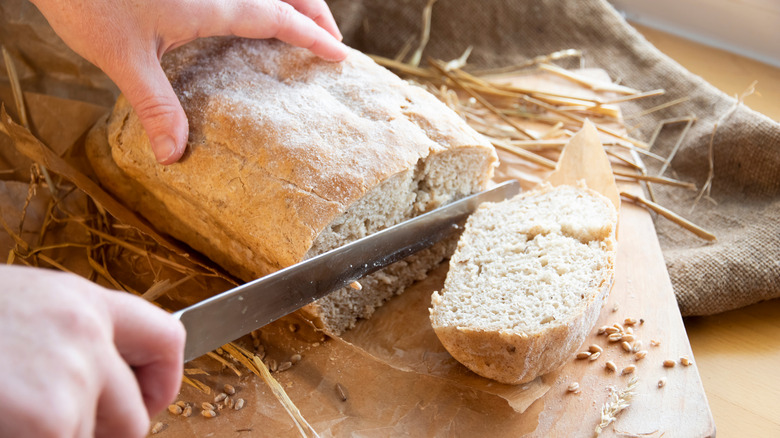Study Reveals A Potential Connection Between COVID-19 And Bread
The rise of the COVID-19 pandemic led to a pressing question: What is the best way to stay healthy during uncertain times and boost your immune system? The World Health Organization advised the general public to prioritize their health and focus on healthy diets while staying at home. People were asked to opt for fresh food instead of processed items and choose options such as fruits, vegetables, whole grain rice, pasta, nuts, eggs, milk, and more.
The general recommendation was to include some kind of physical activity during the day. A BBC article explored the idea of using vitamin supplements to improve your defenses against the virus and stated that supplements don't help much unless you're on a restricted diet such as veganism, with the exception of vitamin D, specifically named as one supplement that's probably worth incorporating into your routine.
And now, a study that has been published in The British Medical Journal Nutrition, Prevention & Health has revealed surprising links between certain food items such as bread and COVID-19.
Diet might make a difference
Per The British Medical Journal Nutrition, Prevention & Health, the study took place in Mexico City and included 236 patients who had or who were suspected to have been infected with the virus. Their symptoms were analyzed and factors such as daily food habits and demographics were taken into consideration before the patients received a diagnosis. Out of the group, 103 patients were found to be positive. It was observed that those who regularly consumed food items such as legumes, bread, cereal, and grains had symptoms that weren't as severe compared to their peers.
According to the researchers, the findings were significant and could offer "a framework for designing a protective diet during the COVID-19 pandemic" while allowing experts to consider "diet-based intervention" while treating patients suffering from COVID-19. The researchers also noted that studies in the past have already revealed that "diets high in fibre, carbohydrates and nutrients can decrease the risk of respiratory infections, such as the common cold and pneumonia, and also shorten their duration."

